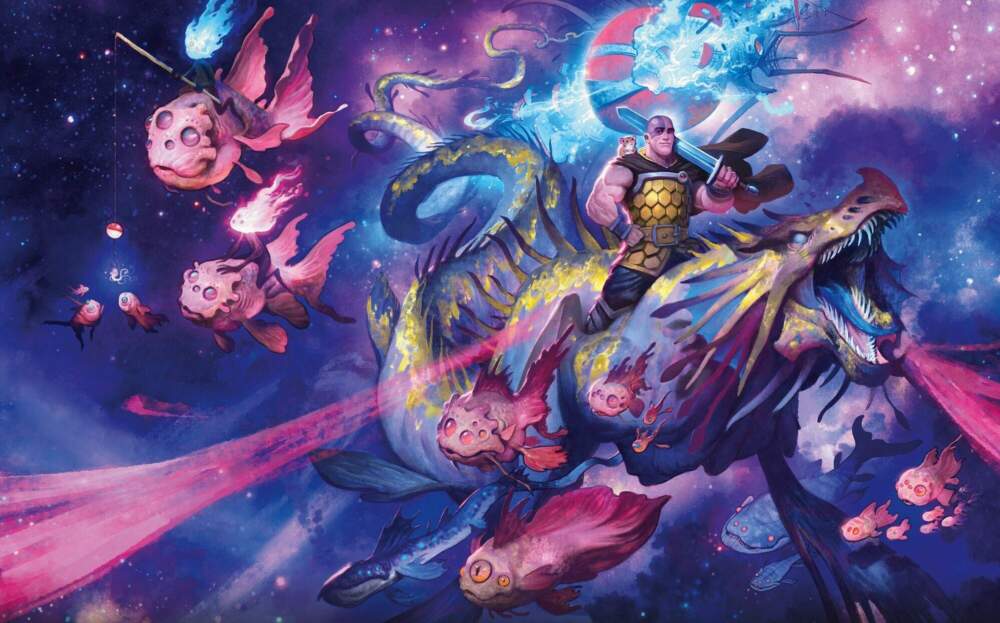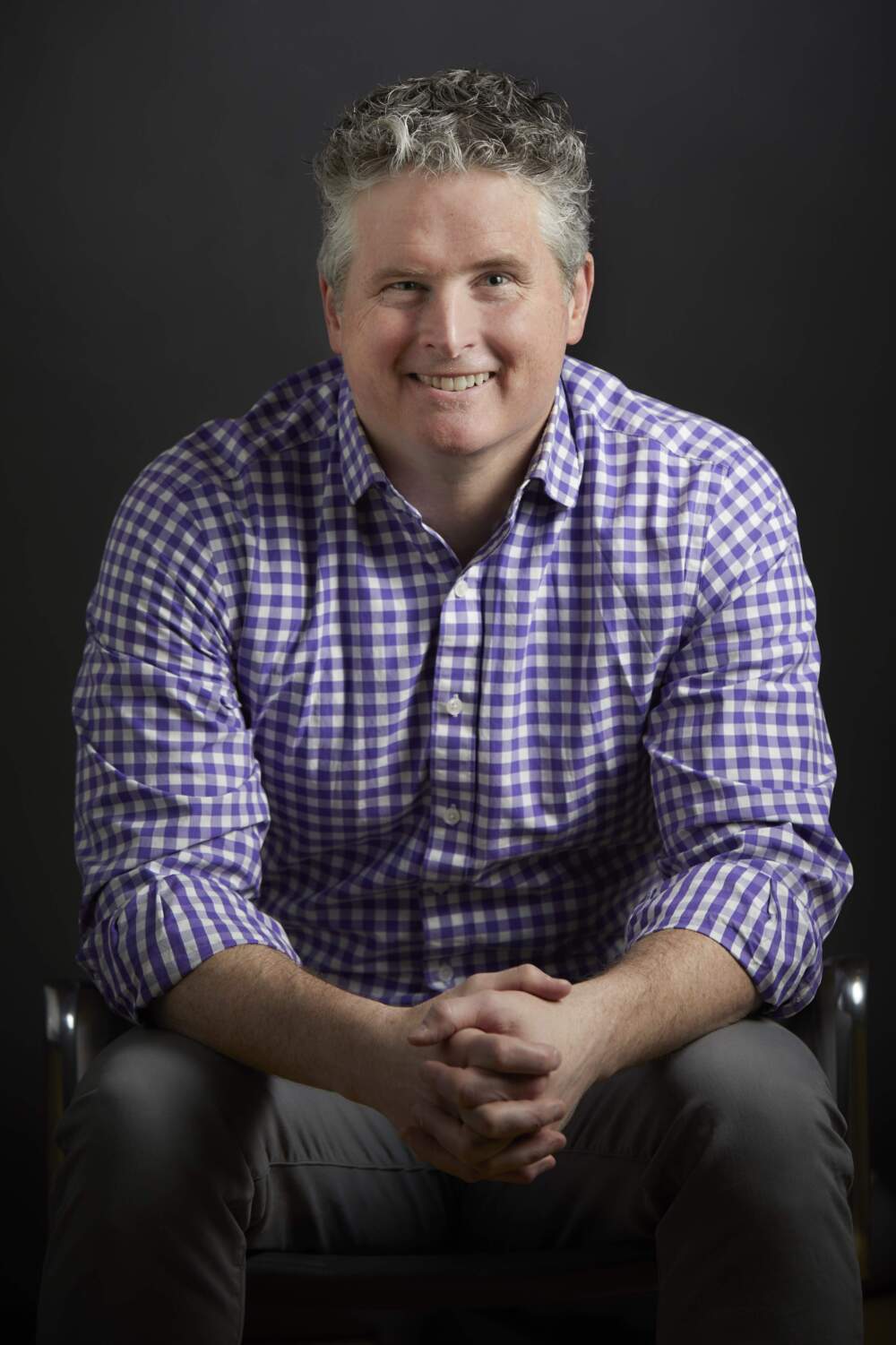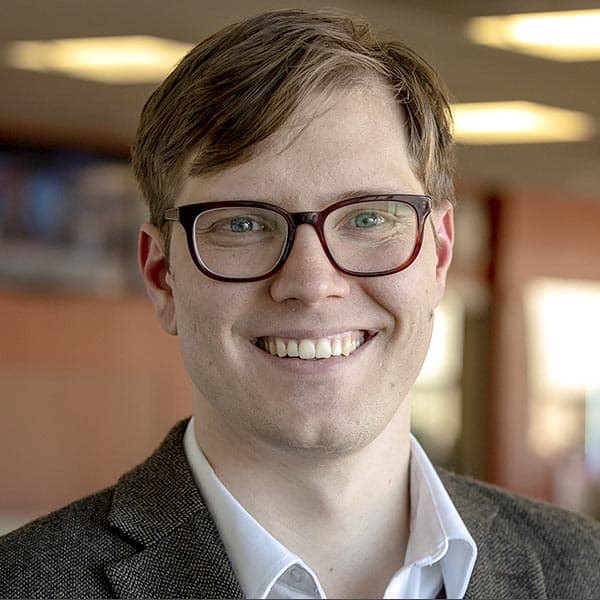Advertisement
Hasbro CEO on the future of 'Dungeons & Dragons' after 50th anniversary
Resume
“Dungeons & Dragons” turns 50 this year, and its owners plan to make games like it the core of their business.
“If you look at ‘Dungeons & Dragons,’ if you look at our board games, more people are playing these games than ever before,” says Hasbro CEO Chris Cocks. “Our satisfaction rates, the happiness that players have, are higher than ever.”
The company can point to the digital D&D adaptation “Baldur’s Gate 3” as the brand’s most recent success. The video game won the top prize at the 2023 Game Awards and has sold well over 10 million copies.
But last year, Hasbo also weathered backlash over a leaked (then dropped) change to its fan licensing agreement, and a disappointing box office for the acclaimed movie “Dungeons & Dragons: Honor Among Thieves.”
Then came layoffs just before Christmas. Hasbro slashed more than 1,000 jobs mid-December, mostly from its ailing toy brands — but positions at D&D and the ultra-popular card game “Magic: The Gathering” also got the axe.
Meanwhile, the company faces burgeoning competition. Critical Role, the media franchise spawned from live D&D broadcasts, has started to produce rival tabletop gaming systems. Online markets like DriveThruRPG feature dozens of alternative roleplaying games which often find champions in popular YouTubers. But despite pessimism from some fans on social media, Cocks sees a sparkling future for D&D and Hasbro’s gaming properties:

“I've been playing D&D since 1983,” says Cocks. “I've been playing ‘Magic: The Gathering’ since 1995. We don't think about this as just a short-term sugar high. We think about this as stewards of the brands who come to it, not just as business people or designers, but as fans of these brands. And we want to pass the torch to new generations of fans even brighter than we found it.”
Hasbro’s licensed mobile game “Monopoly GO!” earned $2 billion after its 2023 release. “Magic: the Gathering” made record profits in recent years, despite grumblings from longtime players. Hasbro has also invested $1 billion into video game projects which include the upcoming science fiction epic “Exodus” starring Matthew McConaughey.
“We've got one of the best game portfolios in the world,” says Cocks. “I think when you talk to Hasbro’s CEO on our second 100th anniversary 99 years from now, I think they'll be talking about how we're still in toys and how we're still in games and how we're talking about the next generation of exciting technologies or play patterns that we can be innovating on. That's certainly what we're trying to build for now, and I think I'm confident we’ll be building for it in the future as well.”
5 questions for Chris Cocks
Can you explain the mass layoffs of last year and why certain jobs were affected?
“We've been going through a turnaround for the last couple of years, particularly in our toy business, making these tough trade-offs around how we preserve our cost base, drive our growth and think about where we want to go in the future of the company. They're always hard, especially when they affect people we work with who are friends and colleagues and loyal to the company.
“We had to make the tough decision to let some people go at the end of last year. That overwhelmingly affected our toy business and kind of like the corporate services that help support it. It did have a smaller impact on our games business, but that was for different reasons inside of toys. It really was around driving this turnaround inside of games. It was more around just kind of changing priorities in a rapidly growing and developing business because games has been a business that's been growing for us, for the last 15 years [and] represents a major investment for us. And we think it's going to be a major grower for us in the future.”
What is it that's more challenging about the toy side that has you pivoting more to the game and digital sides?
“We've got great creative teams. We've got some iconic brands that people literally have grown up with for the last hundred years. It's more of an industry thing.
“Games have been growing at mid to high single digits for the last decade. Toys have been growing more like a single-digit basis for the last, 10, 20 years. A lot of that has to do with birth rates and kind of like the changing nature of play. Increasingly, people are playing at older and older ages. They're playing well into adulthood, but they're shifting to more games at early and earlier ages, both tabletop as well as digital games.”
A number of fans said they were outraged when a leaked corporate document came out that would have taken some royalty money from individual creators who make content of their own for the game, say a new monster or a new world. Hasbro walked back the plan. But some fans are still unhappy with the direction the game is going. How do you make sure to win them back?
“We take a very big tent approach to how we manage the brands and how we think about our fandom. At the end of the day, we try to think about things not just around who's posting online or who's posting videos associated with the brands, but also who's just playing them around kitchen tables or in game stores around the world.
“I think social media is wonderful. It's a very powerful marketing vehicle for us. It's a great way for us to connect with our fans and connect with influencers. But you also have to take a really broad sampling of players’ opinions. If you look at the net satisfaction or any kind of loyalty or satisfaction ratings, they generally are up.
“We make mistakes. We have had products that haven't done as well. We have made some decisions that we've had in some cases quickly walked back. And I think it's the strength of the game that we're as connected to our community as we are, that we empower our teams to make decisions and to be agile and to learn from them.
“D&D, it's one of the most open game licenses in the history of gaming. It's got a vibrant creator community that we value a great deal. We continue to work with those creators. We continue to work with those small publishers. We continue to work with those streamers to make the game as big as possible and as great of a hobby as well as a living for people who kind of create around it as we possibly can.
“Magic: The Gathering" was Hasbro’s first billion-dollar brand, and the company is seeking to steer it toward more casual players by printing and putting out more cards for people to play. But Bank of America briefly downgraded the company's stock in response, saying Hasbro was, “killing the golden goose, flooding the market.” Is that a potential tradeoff here?
“I think it's also important to say a couple of months after Bank of America gave us that rating, they actually raised us back up to a buy. I think what we've done with ‘Magic’ over the last five or six years is we've tripled the size of the game. We significantly expanded the overall player base. And we've done that by thinking expansively about who plays it or who could play it.
“Most video games, particularly, most kind of more hardcore strategy games, they have maybe ten or 15% of their player base that identify as non-male. For Magic, it's more like 35% of players identify as non-male. For ‘Dungeons & Dragons,’ it's closer to 45%. You know, we're very proud of the diversity and the focus on all players of all different stripes who can play the game.
“We've tried very hard to figure out different modes to play it, making it more social and make it more casual in nature while still offering a great depth of play for competitive and highly strategic players. And then we've also done a really good job of thinking through how we can make it more collectible. And as a result, our hobby stores, who are the primary people who sell the game, there's about 10,000 of them around the world who sell it. They've never been more successful with that. And those are small and medium-sized businesses that usually are doing [$200,000] or $300,000 of business a year. And our larger vendors have also done really well, like we've grown across the board and grown both players as well as their engagement.
Hasbro also has a video game coming out starring Matthew McConaughey, after the “Dungeons & Dragons” movie did only okay. But is this where you're headed? Not so much Hollywood movies, but blockbuster games?
“I think it's all of the above. We continue to invest in entertainment. We have a pretty significant team there. And we have some great Hollywood movies and TV shows in development or already produced.
“‘Transformers One’ will be a major animated theatrical event later this year, looking at the origin story of Optimus Prime and Megatron.
“Video games are obviously a huge form of entertainment. I think more and more they're dominating younger viewers and younger players’ favorite brands. I think you see the success of video games with things like the ‘Super Mario’ movie last year or how games are starting to transcend and drive multi-generational play. So certainly we see that and we're investing accordingly. We continue to invest behind entertainment. We can. We are investing more and more in digital. And then we've got our great kind of physical-based play portfolio of iconic games and toys.”
James Perkins Mastromarino produced and edited this interview for broadcast with Todd Mundt. Perkins Mastromarino also adapted it for the web.
This segment aired on April 3, 2024.

